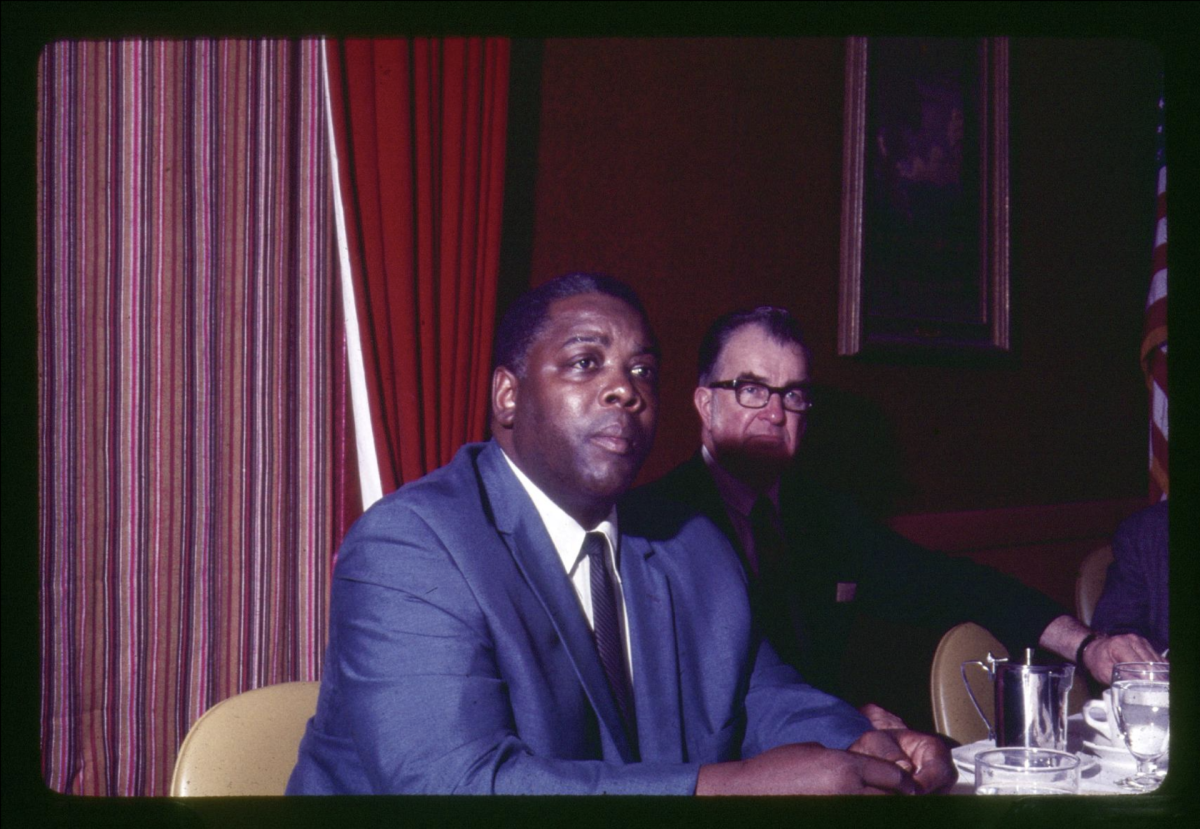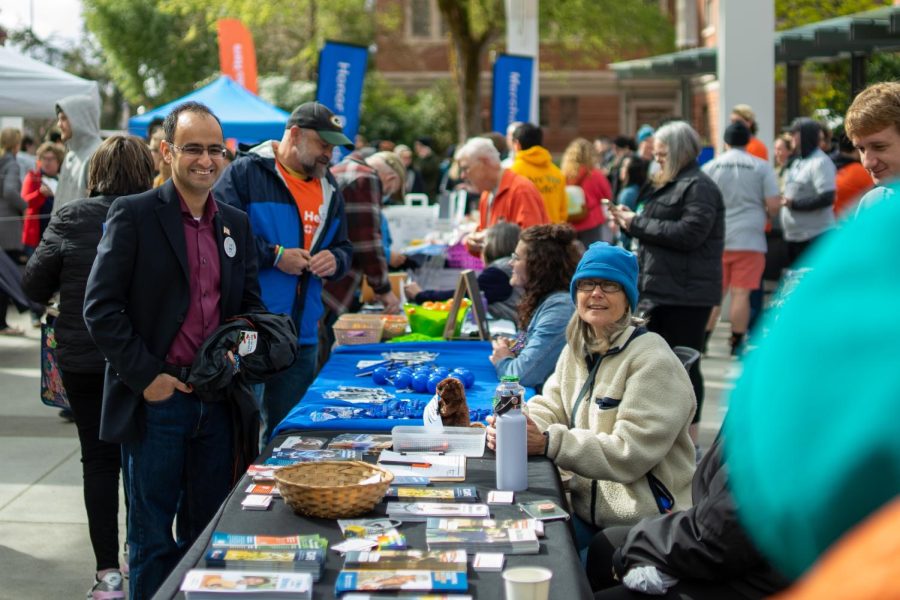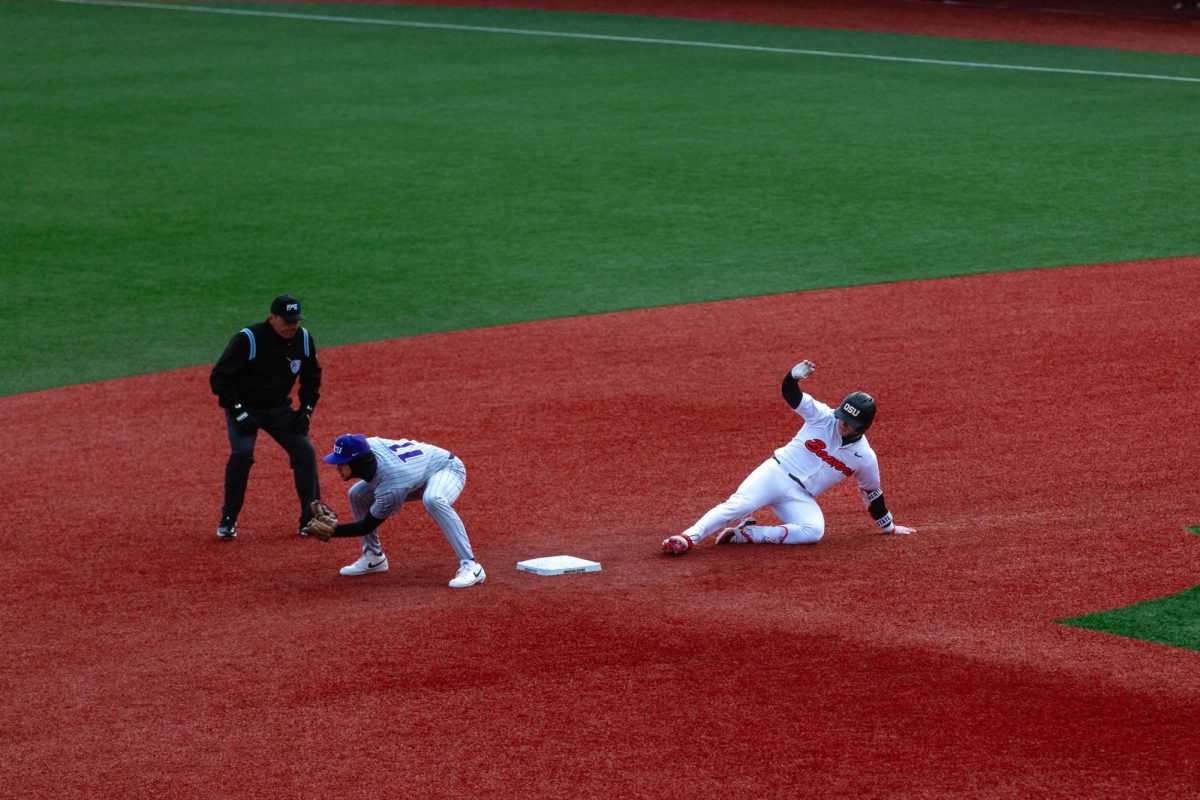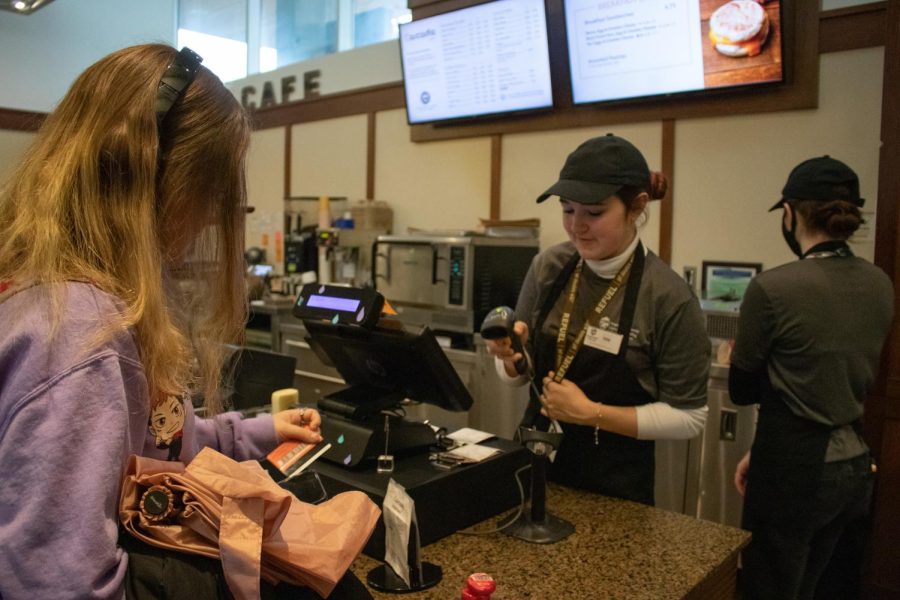Program to reduce disposable cup use has been ‘well received’
Sophia Ospina, a first-year student at Oregon State University, orders hot chocolate from Cascadia Cafe student worker Izzy Waggoner in the International Living-Learning Center on April 19. Cascadia Cafe is one of the on-campus coffee shops participating in the new program to offer students who bring their own reusable mugs a 35-cent discount.
May 2, 2022
More Oregon State University community members have reportedly been bringing reusable mugs to coffee shops after the start of a new program that charges for the use of disposable cups.
In February, Waste Watchers, a club run by Campus Recycling, brought back the use of reusable mugs at on-campus coffee shops and has been rewarding customers with a 35-cent discount every time they use their own mugs.
The program then expanded in March to include a 15-cent charge with the purchase of disposable cups at e.Cafe, located in Kelly Engineering, and Cascadia Cafe, located in the International Living Learning Center.
At these two locations, customers who bring in their own cups also receive a 20-cent discount, totaling to a 35-cent discount on their drink purchase.
“The program has seemingly been received well by cafe customers so far,” said Andrea Norris, marketing and development coordinator of Campus Recycling Surplus Property. “We have not received much in the way of complaints, just a few customers at each location asking questions that have been cleared up with more explanation about how the pricing structure works.”
In order to further encourage the use of reusable mugs, all drink prices at e.Cafe and Cascadia Cafe were lowered at the start of the term to account for the extra charge for using disposable cups.
According to Norris, a month into the program, cafe managers have seen an increase in customers bringing their own mugs; however, specific data is not yet available.
When sufficient data is collected, Norris stated that data and customer surveys will be used in order to determine how effective the program is, and in turn, determine if it will continue, be changed or both. The sales data analyzes the percentage of customers who bring in their own mugs and the surveys will be conducted to gauge customers’ attitudes towards the program as well as if it impacted their use of reusables.
Emily Gulledge, University Housing and Dining Services retail manager at e.Cafe and Cascadia Cafe, stressed that verbally reminding customers of their choice to either bring their own mug or purchase a disposable is key to the success of the program.
“At e.Cafe, I have recently reminded our cashiers to ask each guest, ‘Did you bring your reusable cup or would you like to purchase a disposable?’” Gulledge said. “It was a bit of a hurdle to get over the awkwardness of the request until we were reminded that such language has become normal in our everyday lives. We are asked whether we would like a bag for 5 cents, a straw or utensils. Now, in our cafés, you get a similar question in an effort to reduce waste.”
According to Lily Butler, recycling program assistant and Waste Watchers coordinator for materials management at Campus Recycling and Surplus Property, the main goal for Waste Watchers right now is getting the message out about the price changes at e.Cafe and Cascadia Cafe in order to accurately test the program’s success at encouraging reusable mugs over disposables.
“If customers don’t know about the 15-cent charge for single-cups, we won’t be able to test if paying for cups can motivate customers to bring their reusables,” Butler said.




















































































![Newspaper clipping from February 25, 1970 in the Daily Barometer showing an article written by Bob Allen, past Barometer Editor. This article was written to spotlight both the student body’s lack of participation with student government at the time in conjunction with their class representatives response. [It’s important to note ASOSU was not structured identically to today’s standards, likely having a president on behalf of each class work together as one entity as opposed to one president representing all classes.]](https://dailybaro.orangemedianetwork.com/wp-content/uploads/2025/03/Screenshot-2025-03-12-1.00.42-PM-e1741811160853.png)























